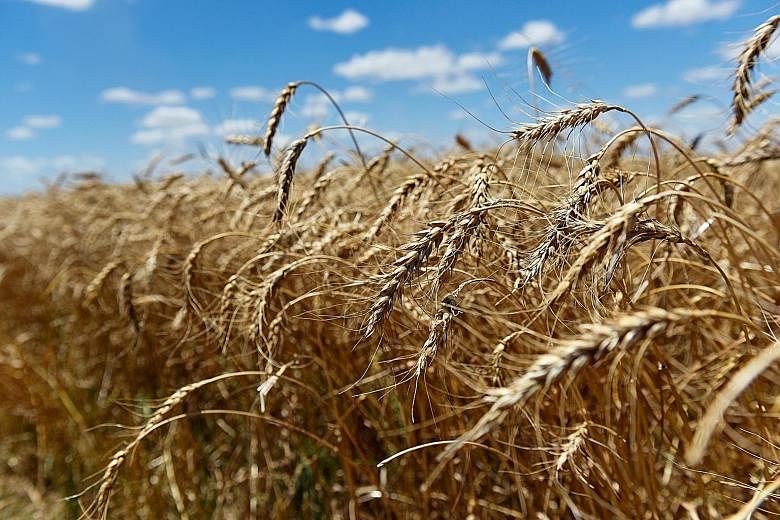ROME • Catastrophic crop failures caused by extreme weather in just one country could disrupt global food supplies and drive price spikes in an interconnected world, exposing how climate change threatens global stability, researchers have said.
They examined how the global trade and supplies of wheat, a crop used for food staples like bread and pasta, would be affected by four years of severe drought in the United States, one of the world's top exporters of the grain.
Based on two models of how countries could try to meet their needs, an international research team found the US would deplete nearly all its wheat reserves after four years in both scenarios, while global stocks could drop by 31 per cent.
The 174 countries to which America exports wheat would see their reserves decrease, even though they did not themselves suffer failed harvests, according to a study published in the journal Frontiers In Sustainable Food Systems. "It affects almost every country in the world because the US has so many trade links," lead author Alison Heslin, a researcher at Columbia University's Centre for Climate Systems Research and Nasa's Goddard Institute for Space Studies, said yesterday.
Those links mean there is a cascading effect, either directly from the US or via one of its trading partners, which could reduce the amount of wheat available and lead to price increases, she told the Thomson Reuters Foundation. As reserves are depleted, changes in production would have a bigger impact on the price of food, Dr Heslin added.
Reduced global reserves would also mean a smaller buffer against future shocks such as a drought in other wheat-producing nations like Russia or France, she said.
Scientists have warned that hotter temperatures and more erratic rainfall could increase the frequency and intensity of droughts, with multi-year dry spells already wreaking havoc in many nations.
Five years of recurring droughts have destroyed corn and bean harvests in Central America's Dry Corridor, for example, leaving poor farmers struggling to feed their families and pushing them to migrate, the United Nations said last year.
The wheat study was based on data from the 1930s American Dust Bowl disaster when corn and wheat production plummeted due to intense drought, higher temperatures and strong winds, causing thousands of deaths.
Dr Heslin said global food security was key to people's health and safety, with international food price spikes in 2008 and 2011 curtailing families' ability to purchase food and rattling political stability as people protested on the streets. Maintaining strategic food reserves and a diverse set of trading partners could help countries reduce risks, she added.
REUTERS

